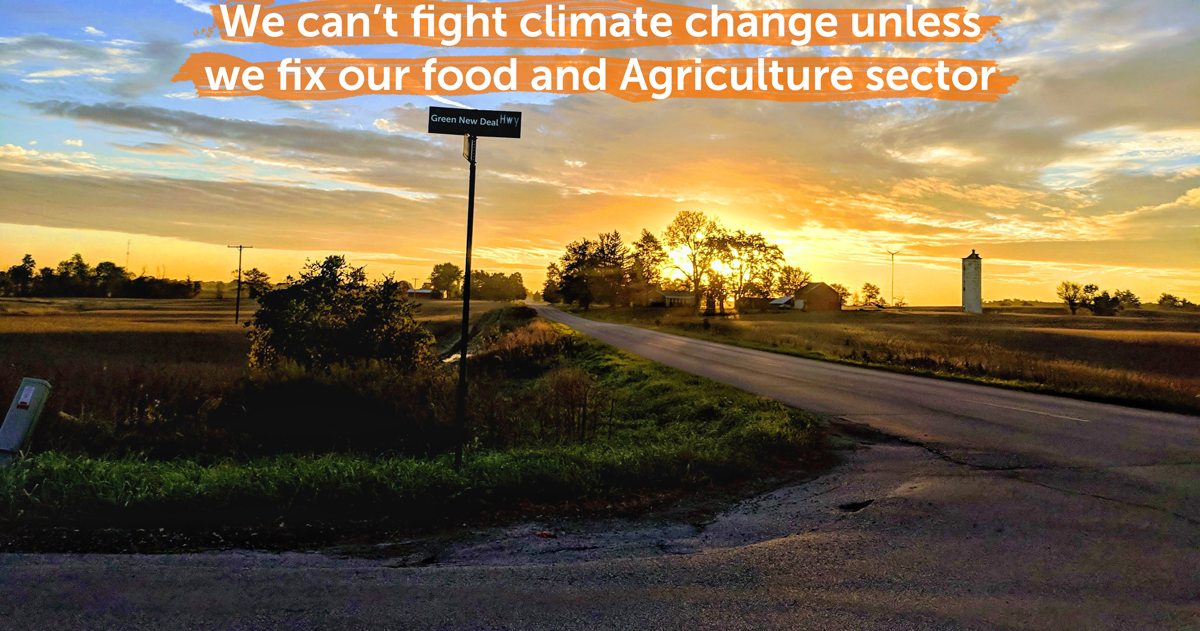Ok, you’ve heard the hype: The Green New Deal is going to ban hamburgers (it doesn’t); the Green New Deal will force vegan soylant green on the unwilling masses (nope); The Green New Deal doesn’t care about farmers — actually, on that last one, it could do a better job helping farmers, but not because it’s an evil socialist plot. The Green New Deal RESOLUTION is just a little vague on the whole food and agriculture thing, and that’s a problem because we can’t solve the climate crisis without changing our food and agriculture system.
A few weeks ago, we were proud to join more than 300 other groups in sending a letter to Congress demanding that they take on food and agriculture as part of a Green New Deal. But the House committees where this could be considered have been busy with disaster relief, or worse, wasting time on big bailouts to corporate agriculture as part of the 2019 farm bill.
Farming and food is the biggest overall employer in the United States, employing some 23.5 million people. If you have a brother, sister, mother, daughter, father, son, friend or neighbor, odds are that one of them works in food and farming.
Partly because of its size, food and agriculture are also one of our biggest contributors to climate change. Meanwhile, the agricultural industry that we all depend upon — as well as the farmers, fishers, farmworkers, food-chain workers, and communities that make up our entire agricultural economy — are harmed by the impacts of weather-related disasters and disruptions as the effects of climate change come to pass.
For the Green New Deal to be truly effective, the workers who grow, cook and care for our food — from the immigrant picking vegetables in the field, to the truck driver who transports them, to the chef or line-cook who prepares your meal, and everyone in between — needs to be part of the solution.
- Carbon reduction, sequestration and climate resilience via a rapid, just transition that empowers farmers and ranchers to adopt ecologically regenerative, organic and agroecological practices;
- Fair prices for farmers, ranchers and fishers, anti-trust measures that help reverse food sector consolidation, and healthy working conditions with family-sustaining living wages for workers;
- Diversified, resilient local and regional food economies anchored by family farmers, ranchers and fishers that ensure healthy, sustainable food for all, combat consolidation in the food and farming sector and reverse the rapid loss of farmers and deterioration of farmland;
- Avoid “false solutions” and agribusiness-sponsored proposals that do nothing to address the systemic causes of our climate crisis and delay progress.
Making fundamental changes to our food and farming system is urgent and central to reducing the impacts of climate change , and is crucial to ensuring food and agricultural justice for the most vulnerable for current and future generations. Sign now to support a Green New Deal that respects the role food and agriculture play in addressing our climate crisis. Science shows that we have no time to lose.

Ecological food and farming networks now!